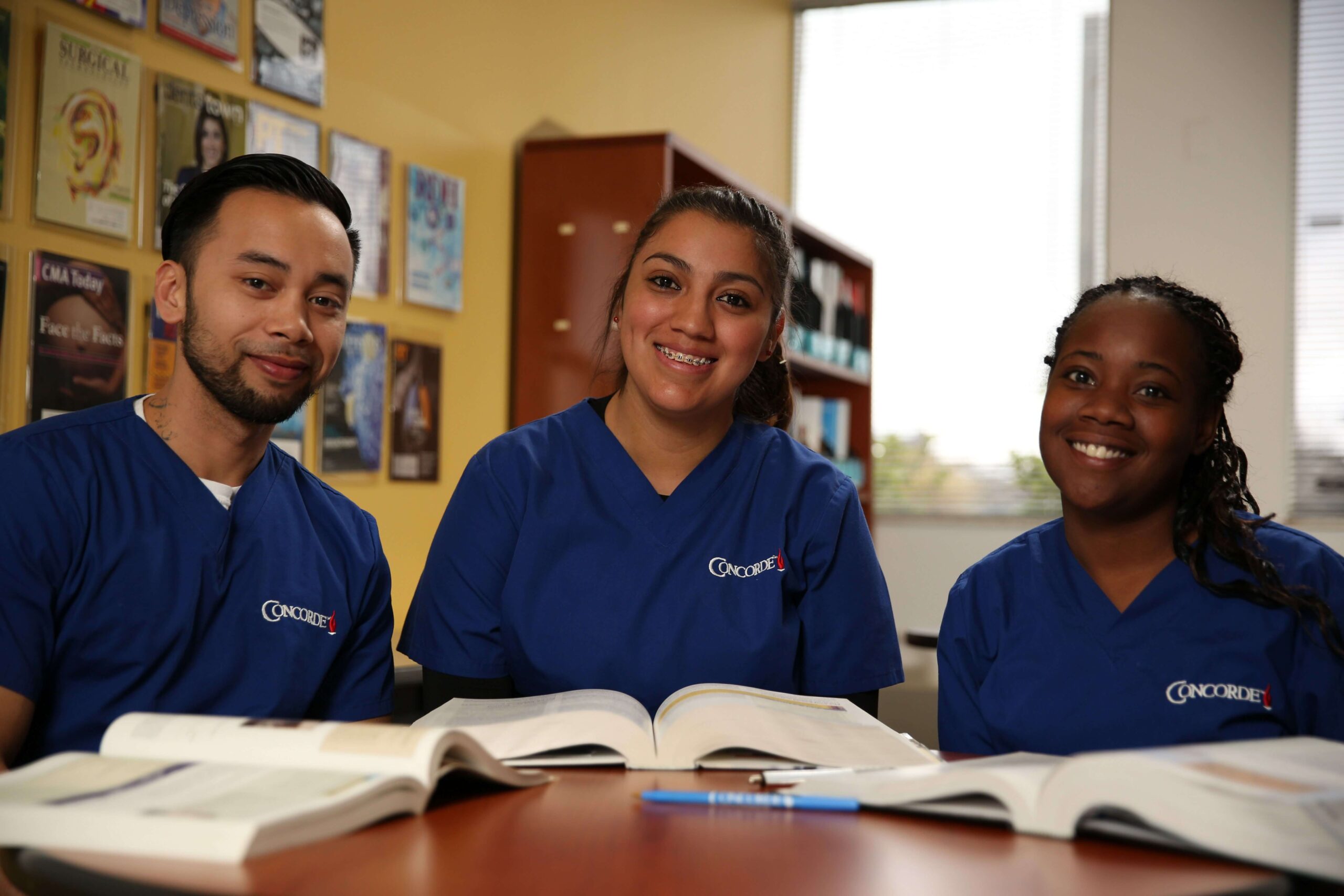Neurodiagnostic Technology Associate of Applied Science
Gain Skills to Help Stroke, Epilepsy and TBI Patients

Background Animation is playing

Program Overview
Neurodiagnostic technicians (NDTs) use a variety of equipment to take measurements and recordings of patients’ brain and nervous system function. These recordings offer physicians the information they need to assess and diagnose patients with epilepsy, traumatic brain injury (TBI) and many other conditions.
Concorde’s NDT associate degree program is designed to prepare you to take patient medical histories and help prepare patients for their imaging procedures. You’ll have the opportunity to learn skills to conduct a variety of tests, including electroencephalograms (EEGs), nerve conduction studies, sleep studies and more. This program also covers skills to evaluate the results and create reports for the physician or other health care professional on duty.
Preparation for Certification Exams
After graduation from the NDT degree program at Concorde in Grand Prairie, you may be eligible to take professional certification examinations offered by the following organizations:†
- American Board of Registered Electroneurodiagnostic Technologists, Inc. (ABRET)
- American Association of Electrodiagnostic Technologists (AAET)
- Board of Registered Polysomnography Technologists (BRPT)
Earning certification has the potential to enhance your professional profile in the job market. Please note that additional experience or training may be required after graduation to complete certification.
PROGRAM FACTS
Skill Building
Learn to capture recordings of patients’ nervous system function.
Versatile Curriculum
Gain skills in our modern labs and apply them in clinical experience settings.
Flexible Class Schedules
Complete your degree in as few as 17 months of study at our Grand Prairie campus.*
Neurodiagnostic Technology Curriculum
The Neurodiagnostic Technology Associate of Applied Science degree program at Concorde Grand Prairie teaches practical skills and knowledge to prepare you to conduct electroencephalography (EEG), evoked potential (EP), long term monitoring (LTM), polysomnography (PSG), nerve conduction studies (NCS), and intraoperative neuromonitoring (IONM).
This program also covers NDT lab operations and management, plus preparation for certification exams.†
- Evoked Potentials
- Nerve Conduction Velocities
- Neuroanatomy and Physiology
- Neurodiagnostics
- Polysomnography
- Pattern Recognition
† Professional certification is not a requirement for graduation, may not be a requirement for employment nor does it guarantee employment. Registration and certification requirements for taking and passing these examinations are not controlled by Concorde, but by outside agencies, and are subject to change by the agency without notice. Therefore, Concorde cannot guarantee graduate eligibility to take these exams, at all or at any specific time, regardless of their eligibility status upon enrollment.
*Program length may be subject to change dependent on transfer credits and course load. Please refer to the current course catalog for more information. Concorde does not guarantee admittance, graduation, subsequent employment or salary amount.
Accreditation Statement
The Neurodiagnostic Technology program has been awarded continuing accreditation by the Commission on Accreditation of Allied Health Education Programs (CAAHEP), 9355 113th St. N, #7709, Seminole, FL 33775; 727-210-2350; https://www.caahep.org/, as recommended by the Committee on Accreditation for Education in Neurodiagnostic Technology (CoA-NDT), 22 Railroad Avenue, Suite 3, Beverly, MA 01915, 978-338- 6300, https://www.coa-ndt.org/.

Take the Next Step Now
Do you think a career as an NDT sounds fascinating? Get in touch with Concorde Grand Prairie today to find out if our associate degree program is right for you!
REQUEST INFO